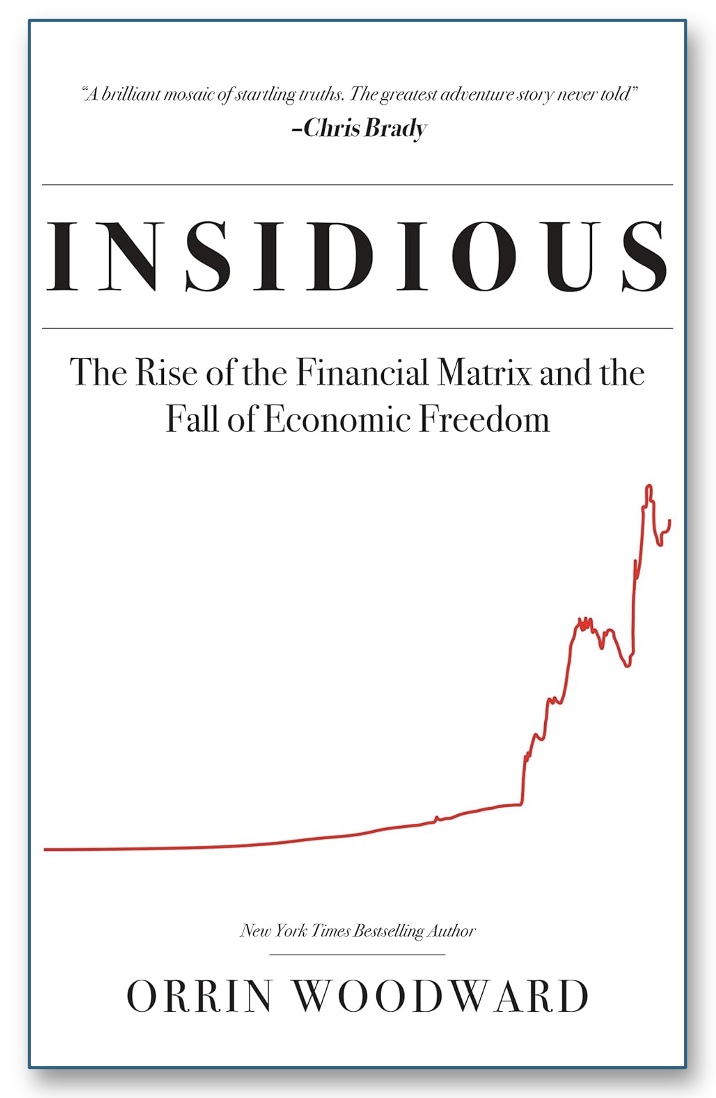The Hunger Games by Suzanne Collins
by Oliver DeMille
“Somehow it all comes back to coal in school. Besides basic reading and math, most of our instruction is coal-related. Except for the weekly lecture on the history of Panem. It’s mostly a lot of blather about what we owe the Capitol. I know there must be more than they’re telling us, an actual account of what happened during the rebellion. But I don’t spend much time thinking about it. Whatever the truth is, I don’t see how it will help me get food on the table.”
 This quote comes from the great freedom classic entitled The Hunger Games. Note that the name of the fictional country is Panem, which is a code-name for “Bread and Circuses.”
This quote comes from the great freedom classic entitled The Hunger Games. Note that the name of the fictional country is Panem, which is a code-name for “Bread and Circuses.”
The quote is so true. When the regular people in a society believe that putting food on the table is the main purpose of their life, they don’t spend much time thinking about freedom—and as a result they always lose it.
Always.
Always.
Freedom is lost when ruling is left to a few elites. Unless the regular people think about history, freedom and leadership—a lot—freedom is always reduced.
And note that when any elite group does take over ruling the people, in any era of world history, that group reads and thinks a lot about freedom, history, leadership and economics.
When the masses are focused on putting food on the table, a few elites run things and freedom disappears.
Welcome to modern America, where even the focus of our schools centers around job training and putting food on the table. Of course, when the regular people focus on keeping their nation free, everyone has more food. But the masses tend to forget this.
The Hunger Games trilogy is one of the best books I’ve ever read on freedom. It shows what happens when the regular people let their freedoms be taken. It shows where we are headed as a society.
According to historical cycles and current trends, we are in a battle for freedom right now, and we lost the last one in 1913. The law of entropy is working powerfully on the world, and it’s going to take something big to stop this train and give freedom a victory. This book has the power to give our youth a clear understanding of what the battle is, why past generations have lost, and what they can do to win this time! On top of that, it shows—in terms that can’t be ignored—the real cost of failure.
This battle is going to be hard, and it’s going to require extreme personal sacrifice from almost everyone involved. Understanding what failure means is something that will help our warriors stay strong against incredible difficulty.
To put it simply, our youth will be fighting a battle that will determine the future of freedom for their children and grandchildren. The opposition understands this war, in and out. So, to really win, we have to prepare ourselves and our youth to face them. We need to understand what the fight is, how defeat the enemy, and what it really means to win or lose. This book has the answers and it teaches them in powerful and meaningful ways.
It is also the best book I’ve ever read showing how bad abortion really is. When a nation is willing to kill its children for its convenience … well, that’s what this book is about.
I know that the book has received a lot of acclaim and popularity for other reasons, and is often grouped with other popular “teen fiction”. But this book is not for children, and it doesn’t pander to popular culture. This is a serious book for serious youth and adults, who ought to be discussing its central themes in earnest.
I’m glad it’s received so much attention. We need to soak up these messages and realize how vitally important they are. The Hunger Games is a great freedom classic like Utopia or 1984!
If you haven’t read the book, don’t knock it. And if you’ve seen the movie, it isn’t even close to the same thing. The book is a great freedom classic. Sadly, most conservatives haven’t figured this out—mainly because they’re distracted by the movie instead of really reading the whole trilogy.
Back in the 1970s, the environmental movement did something really smart. Its leaders realized that trying to convince most adults of the Green cause was going to face stiff opposition, so they adopted a different strategy. They took their message to the youth, and they made it emotional rather than intellectual.
Today many people over fifty are still arguing the science and facts concerning the environment and environmental policy, but pretty much nobody under thirty cares. The rising generation all feels deeply about the environment. This was a very smart strategy.
Conservatives have the chance right now to do the same thing with abortion, if they are smart enough. The Hunger Games does it, if conservative leaders and thinkers will only let it. One favorite book of mine that I can compare it to, for reference to slavery, oppression, violence, deliverance, heroism, forgiveness – is Corrie ten Boom’s The Hiding Place. This is in that genre.
This book should be read by every youth today, and discussed with a parent or adult who understands these themes and can help each youth see them clearly! This isn’t just another Harry Potter or Twilight that focus on dark themes. I mean, abortion, poverty, war and the overthrow of the republic are dark themes, for sure, but it’s also a current reality.
We don’t have a bunch of actual magicians or vampires who suck peoples’ necks in our neighborhoods, but we have aborted over 53 million babies in recent America. And The Hunger Games makes an incredibly compelling case against this—in a way that our modern youth are feeling it and can’t ignore it.
If only the adults will help them see the connections!
And, by the way, abortion is only one of five powerful freedom themes in this excellent series. Read this book! It’s a world-changer.
Disclaimer: this book has mature themes – violence, extreme poverty, oppression, etc.
****************
 Oliver DeMille is the co-founder of the Center for Social Leadership, and a co-creator of TJEd. He is the NY Times Bestselling co-author of LeaderShift, and author of A Thomas Jefferson Education: Teaching a Generation of Leaders for the 21st Century, The Coming Aristocracy: Education & the Future of Freedom, and FreedomShift: 3 Choices to Reclaim America’s Destiny.
Oliver DeMille is the co-founder of the Center for Social Leadership, and a co-creator of TJEd. He is the NY Times Bestselling co-author of LeaderShift, and author of A Thomas Jefferson Education: Teaching a Generation of Leaders for the 21st Century, The Coming Aristocracy: Education & the Future of Freedom, and FreedomShift: 3 Choices to Reclaim America’s Destiny.
Oliver is dedicated to promoting freedom through Leadership Education. He and his wife Rachel are raising their eight children in Cedar City, Utah.






























I was introduced to your site by a friend who knows what I do with reading. I didn’t go to the movie because of Christian reviews which denounced what they called the glorification of children being slaughtered. Having seen that in the previews, I figured I did not want to fall into that “bread and circus” entertainment, even though the story was portraying it to wake us up to the reality we are living today. I did not expect to see a review which lauded this book series so highly, which is what drew me to read it. When a friend tells me “this is one of my all-time favorite books”, I take that as reason enough for me to make the leap. I am presently finishing “David Copperfield” thanks to my friend, Patrick. I have a sense that you are a friend, so I will pick up your recommended freedom classic. Thanks.
I was very surprised by this article. I haven’t read the books, because from what I’ve heard about them they seemed to be dystopian, but without real depth. I will reconsider my decision, because I trust your recommendation.
However, I have read the Harry Potter series, and I am surprised that you don’t seem to find depth there. There isn’t much in the first few books, but by the 6th and 7th books, with an evil dictator taking over the wizarding world and disarming the people, and imposing class restrictions, not to mention freedom fighters on the run from the government, I thought it was a freedom classic for our time.
It would certainly be worthwhile to discuss the meaning and worth of each series.
I read this before, but re-read it today, and got hung up part of the way through. “When the regular people in a society believe that putting food on the table is the main purpose of their life,…” stopped me. WOW. I think that’s the right perspective. I hadn’t thought of it in that way before. I usually have the perspective of “When people are so hungry that putting food on the table is all they can think of, that has to be taken care of first.” But that’s not right. SOME things are more important than food, not at the expense of starving to death, but people may skip a meal–even when hungry–to advance themselves or society.
I also loved the Hunger Games books and appreciated the themes of freedom, throughout but I got a very different message in my reading. I felt that on an emotional level the conditions in the fictional arenas in the story reflect the culture of our public high schools.
Let me give some examples. Remember I am talking about how it feels emotionally to our kids in high school, not how it really is or how adults perceive it.
The atmosphere of being watched and judged. In the books the characters, in the arenas behavior is shaped by the knowledge they are being watched. This is especially confusing when it comes to love. It is not just on “reality TV” that people act for an audience. Kids in high school do too.
The shifting alliances that feel like life and death. Girls especially in Jr high and high school live in a world of betrayal, secrets and false friends. A world where the need to conform within a clique can be tyranny. I recommend the book Queen Bees and Wanna Bees to understand how this works in cliques and in the high school “bubble”. In the books the character Katness is able to forge real friendships in a false world. That is exactly what public school kids are trying to do.
In the books, characters know that how they look, and how popular they are in the Capital is a life or death question. High school can feel like that.
Adults are shocked by the children killing children premise. These same adults are also shocked by the real life bullying that goes on every day in America schools. These books address the emotional “why” of the popularity pecking order. Bullying and being ostracized can feel like a death to kids.
Many Adults can’t comprehend why teens today dress and act like compulsive nonconforming/conformist and can’t seem to articulate why clothing etc. are so important to them. I suggest they read these books, not as a literal story but as an emotional landscape.
Young people are drawn to these books and identify with the characters. I think part of the reason for this is that good fiction can powerfully speak on an emotional level. The Hunger Games books are to me a powerful argument against our government school system.
I recommend these books not just for the reasons listed above but also because of the wonderful conversations I had with my youth after reading them. Our studies of the French, Roman and Russian revolutions were revitalized, The relationships in the books gave us so many great discussions. I love that Katness begins the books separated from her mother but after she has experience the same depression her mother suffered from, they come together in the end and cry together. The power of empathy is a theme throughout. The moral questions are poignant. I recommend this book because the discussions based on them are so rich.
I must say that only because of your recommendation did I read the first of the Hunger Games books. Perhaps I am old fashioned, but I couldn’t get past the banality of Collins’ writing style.
Hey, this is great. Thanks for sharing this article. Although, it seems like two articles in one once the abortion section emerges.
I have to say that having lived now for 7 1/2 years in third-world countries in my adult life as an American, I can see the process of degradation of freedoms once dearly earned. While America seems the idol of Bread and Circuses, where I have lived is certainly the districts, where living meal to meal is a daily, horrible reality with people I really care about. It feels like such a leap from this point to talk to people about the value of education, but that is precisely the path to recovery. And, you are spot on about the opposition having full knowledge. For example, in Honduras, if a guy who stopped schooling at 2nd grade to help support the family financially grew up and decided to get a formal education, he would literally have to start his progress with grade 3, add 9 years just to graduate…no GED for the deliberately oppressed. I tried talking with the ministry of education and there was NO interest there to work some change. We did lots of outreach for education, but there is a huge battle to conquer once so much ground is lost. I hope that people read Hunger Games and get the messages you mention here. It really has the potential to change the world.